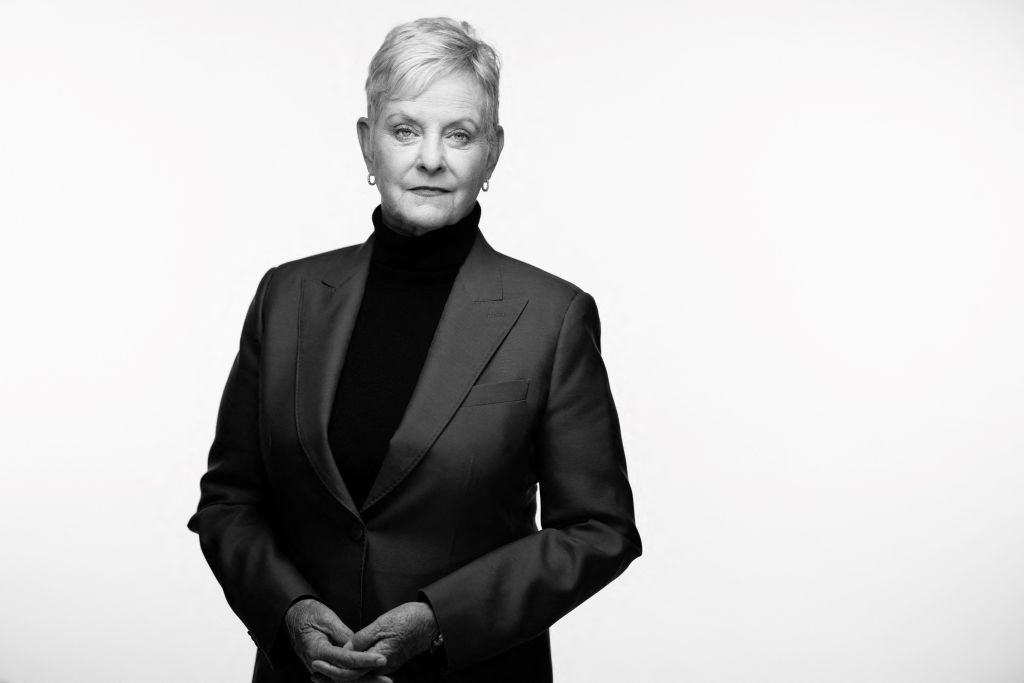In June this year, a 15-truck convoy of humanitarians travelled more than a thousand miles across Sudan, loaded with life-saving supplies for desperately vulnerable children and families at risk of imminent starvation.
Such trips always involve a degree of uncertainty and risk, and require delicate negotiations for access to civilians trapped in the middle of a brutal conflict.
[time-brightcove not-tgx=”true”]
The journey to El Fasher was nearly complete, but the convoy never reached its destination. It was attacked, and five people were killed.
They were not soldiers.
They were not part of the conflict.
They were part of a humanitarian lifeline.
Working on behalf of UNICEF and the organization I lead, the World Food Programme (WFP), they were humanitarians—and they were killed for the crime of saving lives. It was an appalling and unacceptable act.
Humanitarians are not a target. Period. Yet our five brave colleagues paid for their humanity with their lives.
August 19 is World Humanitarian Day. It is observed each year on the anniversary of the 2003 bombing of the United Nations headquarters in Baghdad, which killed 22 aid workers. It is a day to honor aid workers and the sacrifices they make for the people they serve.
A humanitarian is someone who provides food, or medicine, or shelter, while upholding the core humanitarian principles of humanity, impartiality, neutrality, and independence. It is someone who does not take sides in a conflict. It is someone who protects the powerless, and who is willing to put others before themselves in order to help those most in need.
Our five colleagues lost in Sudan were true humanitarians. And it has never been harder to be one than right now. It is more difficult—and sometimes impossible—to access people who need humanitarian assistance. It is more difficult to plan and predict future needs and where new crises will emerge. And as the tragic events in Sudan illustrate, it is more dangerous than ever for aid workers to fulfill their life-saving mission.
WFP, along with every other humanitarian agency, is navigating a new and more challenging geopolitical landscape.
Global needs are alarmingly high, driven overwhelmingly by the consequences of conflict and instability, yet the resources required to meet them are shrinking as some governments cut their funding for international humanitarian work.
As a result, WFP is facing a deep budget shortfall which has forced drastic cuts to critical food assistance. Millions of people have lost, or will soon lose, the lifeline we provide.
At the same time, conditions on the ground are growing ever riskier and more complex, as respect for international humanitarian law and the safety of aid workers is steadily eroded.
There is no getting around this statistic: last year was the deadliest year for humanitarians on record with 383 killed. This year is on track to be just as deadly. Many were from our own UN family. All paid the ultimate price.
Right now, our teams in Gaza are doing heroic work in impossible conditions. They fear for their own lives while they and their families are gripped by the same hunger as the rest of the civilian population. In Yemen, WFP team members have been arbitrarily detained. Tragically, one of them died in custody earlier this year. In Ukraine, humanitarian sites and vehicles have been struck 41 times in the past year alone. In Haiti, record levels of gang violence are hampering our ability to reach people in urgent need.
Yet as others who can are leaving to get out of harm’s way, dedicated humanitarians are determined to stay and deliver—even when it means risking their own lives to save others.
The courage and commitment of our teams as they work around the clock to reach the most vulnerable people on the planet is humbling to witness. I count myself lucky to work with them, and I mourn all those we have lost. But risking life or death should never be part of any humanitarian’s job description.
WFP will keep showing up for the world’s most vulnerable. But we cannot do it alone. We need warring parties to uphold their obligations under international humanitarian law, and to be held accountable when they refuse. We need governments to step up, not just with funding, but also with political will and diplomatic solutions to end the conflicts that are fueling so much of the hunger and malnutrition we see in the world today.
Attacks on humanitarian workers must stop. Attacks on civilians and the basic infrastructure that supports them must stop. They are indefensible.
Every time global leaders fail to uphold and enforce humanitarian law, fail to negotiate a ceasefire, fail to insist on safe passage for lifesaving aid, they are asking my teams to risk more and more to bridge the widening gaps in the multilateral system. Enough. We cannot—we must not—continue like this.
The killing of every aid worker is an outrage. So is the death of every child stolen by starvation. Both are preventable. Neither should happen.
On World Humanitarian Day, let us commit to reversing this lethal erosion of humanitarian principles, and instead do what is necessary to ensure aid workers can operate in safety and security—to protect the lives of the vulnerable people we serve.

